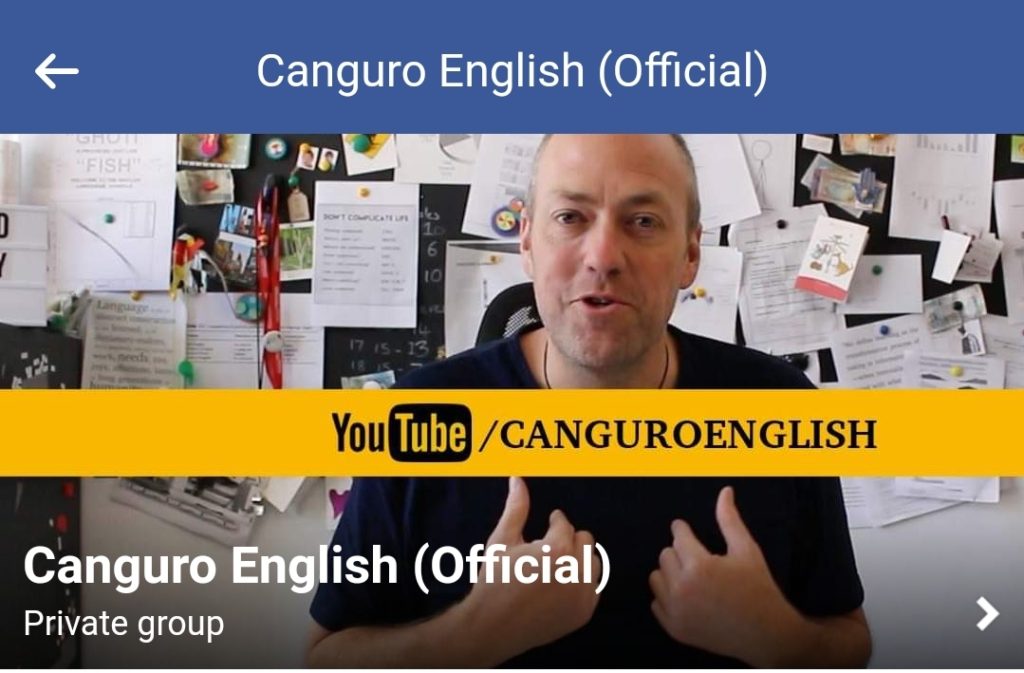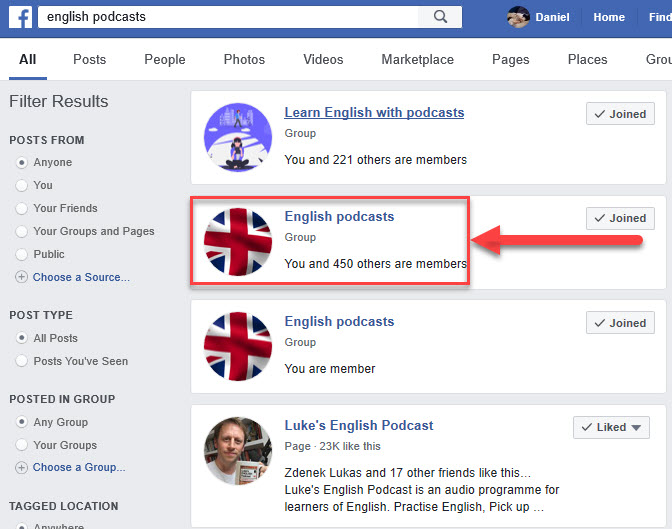Accent prejudice is widely discussed these days! In this podcast episode, we ask different language learners if they have ever experienced accent prejudice. Listen to what they answered by clicking on the audio below or listen to the transcript.

Why did we pick language prejudice as a topic?
Recently, accent dicrimination and accent prejudice has become a huge topic in the (social) media. All about accents fascinates me a great deal and as a matter of fact, due to personal reasons, the language prejudice or accent shame takes a role in my life. For instance, My fluent podcast covered a similar topic on episode 40 Don’t be ashamed of your accent!
You will find the full transcript below.
What did I learn by producing this episode? Learn to accept your accent.
Besides the exposure to the English language which helps me to improve my language skills, I could get in touch with super cool people. After all, Persistence pays off! I could learn that once again! As a matter of fact, in the beginning, I was insecure if any of the people would even want to participate. Actually, I reached out to a lot of people on facebook through private message. Firstly, nobody answered. Then first doubts came up. “Is this a stupid idea? Why don’t they give an answer at all?” I fought my negative thoughts down and kept going. And you know what: it was absolutely worth it!
In the end, I’m really happy about the results and I am thankful for the people participating or giving me further advice. I hope you will enjoy as well!
I am sure you will!
Full Transcript (for free)
Introduction
I had some bizarre comparison to my accent, like east Kentucky or Pennsylvania.
Ludmila
My name is Mila I’m from Russia. Of course. Sometimes people pay attention to my accent, but I tell them, sure, I’m Russian. What do you want? But I’m ready to face the prejudice.
Mila
Today’s question on my fluent podcast is “have you ever experienced accent prejudice?” And we will be able to listen to different English learners from all over the world. But first: on our last episode, 66, speak English fluently through gamification. We might an interview with Roberto, from Italy who spoke about an amazing speaking game “by playing off the cuff seven months ago, I took the courage to speak. I think that my fluency had a great advantage for me because I can speak freely. This is the aim of off the cuff”. And on this episode, we are going to speak about acts and prejudice. It’s kind of the learner’s perspective. I liked the idea to see and learn about the life of different language learners. And for that, I reached out to a lot of different language learners. And wanted to know what they think about it.
Ludmila from the Slovak Republic
My name is Ludmila. I was born and raised in former Czechoslovakia Slovak Republic.

Flag-map of First Slovak Republic (1939-1945)
Now many years living in the US I had many different experiences about the fact that I have an accent. People usually responded positive and loved my accent. However, I had some bizarre comparisons to accents like East Kentucky, or Pennsylvania. Southern accent in USA are just very hard to understand and sound very foreign to the foreigners, in my opinion. And when I feel that somebody has a problem, the way I speak, my response would be “just because I speak with an accent. It doesn’t mean, I think with one.” So there you have it. And then now back to Daniel. Thank you.
Just because I speak with an accent doesn’t mean, I think with one,
Liudmila from the Slovak Republic
Really great. Thank you so much Ludmila, for your contribution and many greetings to the Slovak Republic, and now let’s visit Russia.
Ludmila from Russia
Hello, my name is Mila. I’m from Russia. So, my mother tongue is Russian. And I would like to say something about accent prejudice. I have never experienced the thing like that. Of course, sometimes people pay attention to my accent, but I tell them, sure, I’m Russian. What do you want? But I’m ready to face the prejudice to tell the truth. And if it’s a native speaker, Okay. Let’s give them a try to say a sentence in Russian and compare whose accent is worse, but if it’s not a native speaker, why should they pay attention to words of a silly person? Because only a silly person cannot appreciate the whole hard work because every person who started knows how difficult it is.
Thank you very much Mila for your contribution with your interesting comment. And yes, we all know how hard it is to, to improve in our target language. And obviously, there are people who doesn’t know and doesn’t appreciate it.
Joranin from Thailand
Hi, I’m Joranin and I am from Thailand and my mother tongue is Thai. I honestly haven’t been making fun from the native, it’s people around me. who was making fun of me. And honestly, I feel discouraged to speak up. My host brother didn’t even make fun of me, when I can’t pronounce the word camera. He’s even taught me how to say it right. But the people around me, they’re trained to believe that good accent equals good English and bad accent equals stupid. That’s why most people don’t have the gut to speak out. Another occasion I found on YouTube is that there’s a channel where two natives are talking together. I remember a guy saying like, um, I don’t like when people say good morning, how are you? And fine, because I can know that their English is weak and I don’t want to talk with them. I was like, dude, seriously? What a self centered person. I disliked that video immediately and never led you to recommend the channel. Again, speaking English is so simple that we’ve got to have somebody to help us misunderstand it, speak today, to speak out.

Don’t let you disencourage because you (still) have your accent (mother tongue)
Thank you very much Joranim. And please guys, don’t let them get you down. Speak up. As Joranim said it so beautifully and it takes courage to speak up. So I absolutely recommend you to find the right people where you feel at home, where you free, comfortable, and, and consequently, you will speak more. And. You will improve your, your speaking. And as a matter of fact, I, myself, I had a lot of self doubt if I really should start out with my podcast and I am so glad I did back then in 2016, because to be honest, I could really improve my speaking abilities, I think. And a crucial part is also the communication with all the listeners and with other learners, it is so interesting. And I want to encourage you to participate more often here on my podcast, to be honest. And I talked about this several times that I should have named the podcast, our fluent podcast, it would be maybe more encouraging to participate instead of my fluent podcast, which implies sort of mono lingual (monoloque) approach, but it should not be a monologue, not at all. So next app is check from the USA who struggled a lot with his regional accent, but listen for yourself.
Jack from the USA
My natural accent from childhood was a very strong, distinctive regional accent. Marking me as a New Englander United States Northeast. When I first joined the army many years ago and started traveling through the American South, I encountered quite a lot of prejudice and hostility because of my accent. I worked very hard at losing my regional accent over the years. Now after I retired and moved back ho me. Now I am very happily reacquiring it.
Outro of this accent related episode
Thank you so much. Jack for your comment here. And finally, we all should bear in mind that our accent is our identity.
Special thanks go to…
I’m going to say just a few things here before I will wrap this up. So first off, I want to thank you all for tuning in and especially I want to thank
Jack, Joranin, Ludmila and Mila. Oh. And before I forget a big shout out, goes to the Canguro English Facebook group. As well because all of the participants here were, or are members of this excellent group. In a nutshell, it’s (Canguro English) a safe space for you to express yourself where you can share tips and tricks. For learning English and find a speaking partner.

Without you, this could not have happened. And we should try to speak up even though if we are afraid, sometimes. Well, there are people who don’t really mind about it. Meaning they don’t bother about their accent. They just speak. So, but I’m speaking, especially to the more introvert person or maybe to the insecure learners. Just speak up. This is Daniel Goodson. Thank you. If you want to listen to more episodes, you can go to. Myfluentpodcast.com or just follow me on the common podcast services, such as iTunes, Spotify, and Google podcast. And by the way, I am also on Instagram and Facebook. I am the creator of the group English Podcasts. So you may join as well and share your favorite podcast with us by music in the background, just from Scott homes.

The song that you can listen on this episode is called… Speak today to speak out.
Other sources related to this episode
Time Out New York channel
Did you like this Blog post or the podcast?
Then share it! Because sharing means caring! Thx!
… Stop… You may also like episode 65 How do I speak clearly?
2 Comments
I have recently been asked to re-do a section of the course I am studying because my Scottish vowel sounds are ‘wrong’. I was referred to an app for learners of English. Do you think there is any way I can challenge this?
Hey Anne. Thank you for your comment. Yeah I think you should stick to a few audio example and try to mimic the sounds. Every day 15 minutes will do the trick. After a few weeks the results will show.